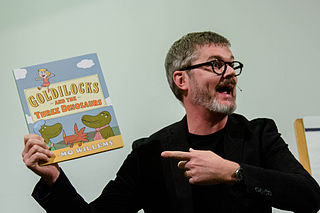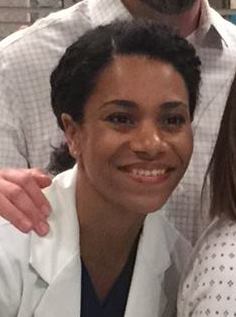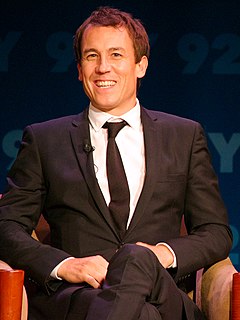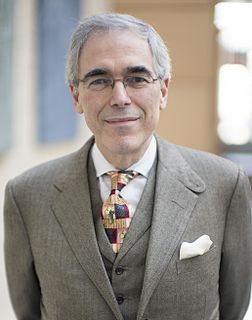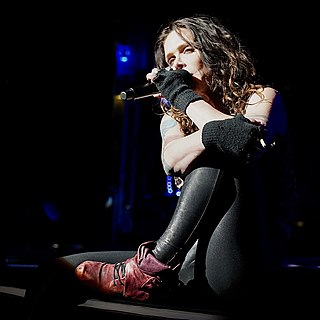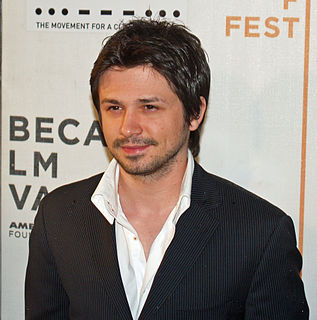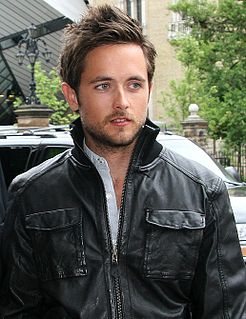A Quote by Mo Willems
I also learn a lot about everybody else's process. People create in different ways, so that has opened me up to different processes and experimenting. Laurie Keller is a character person, so she came to the project with these blades-of-grass characters that we were able to literally grow a story around.
Related Quotes
When you make a decision, you don't have to be locked into it. One of the ways that you grow is by starting over. There are all kinds of really powerful things in that moment, which is what makes story work. Part of Laurie's Keller personality is this ability to revise, to come back and to look at things from a different angle. I don't want to tell stories too much out of school, but Laurie Keller is the only person who sent me a card on my birthday and then sent me a revision.
Acting is a job you can learn a lot in. You get to play lots of different characters with different professions and different backgrounds; they come from different places than you do, so it's really fun when you're immersing yourself in that world of that person to learn about how other people's lives are.
I like to have a much greater base and know a lot more about my character before I begin to fill the person. So a lot of it really entails sit-downs with them, determining who she is, where she came from, and why she reacts a certain way, and then I was really able to expand upon a lot of that and create a lot of that story on my own.
Elephant and Piggie could just Google themselves! With the Elephant & Piggie Like Reading! series, we're picking artists who have a voice already. They have a sensibility. I don't want to make a book about blades of grass. That doesn't interest me. I want to make a book that Laurie Keller uses to express herself in this format. That's the key. That's what's going to keep it individual.
I would have to say Björk is my dream collaboration. She's just such a character and has such a spirit that is unlike any other artist out there. She's literally on a whole 'nother planet. She's consistently changing and evolving and doing these different wild things with her songs. I think I could learn a lot from a person like that.
Writing two stories [in the Thorn and the Blossom] about the same set of events that were complete stories in themselves, but also added up to a larger story. As I was writing them, I kept going back and forth, because something would happen in one story that would have to be reflected in the other story. And yet the same event would also have to be perceived in different ways by Brendan and Evelyn, because they are different people with their own interpretations.
The type of acting that I'm interested in, that I aspire to, is where I try and drag a lot of myself into whatever character it is. They can be very different types of characters, but at the heart of it, I always wanted to be a very, very believable and rooted in reality. One of the ways of doing that is to root it as much as you can in your own experiences and then tint those with different hues, different colors to give the different characters their way.
Being a creative person is a really personal process so there is no one-size-fits-all advice, that's kind of the first thing I'd say. Because everybody's goals are different. Everybody's talents are different. Some women that I'm talking to want to create a television show. Some women want to be a director. They want to use comedy in different ways, and I find that really fascinating. The main thing I would say is, start! Just do it. Keep going. When people come at you with the negativity and the nos, you've got to ignore it. Push through.
I just want to do shows because you get to see, over all the seasons, the person grow, and you get to grow with the character. That transformation, for me, is what I love about my job. I get to learn about myself and challenge myself and grow with the character. For me, it's a whole process of learning and growing.
Changers are characters who alter in significant ways as a result of the events of your story. They learn something or grow into better or worse people, but by the end of the story they are not the same personalities they were in the beginning. Their change, in its various stages, is called the story's emotional arc.
I fundamentally believe that no one can teach you how to write - finding out how to write a story is part of the process of creating a story - but you can really learn through exposure to different writing, to different art forms, to different modes of storytelling, and with mentors who are able to get you to step outside your comfort zone.
